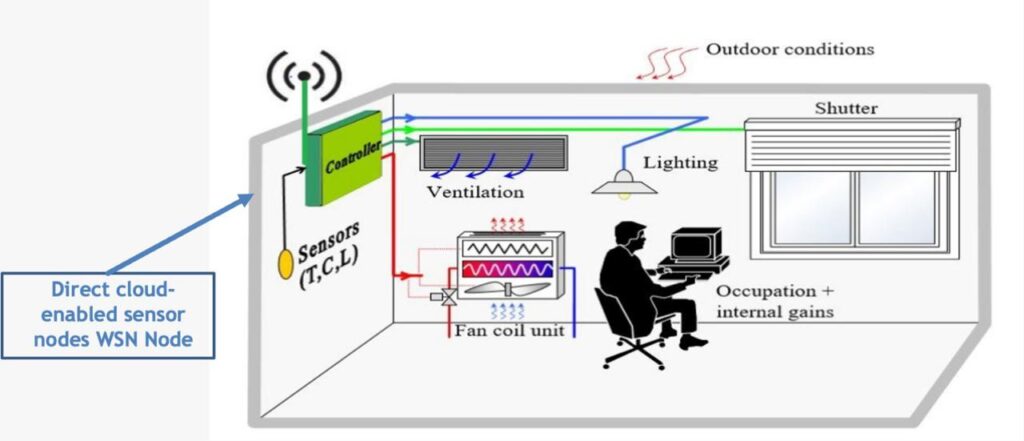IIT-Mandi researchers secure patent for groundbreaking power management system in cloud-enabled nodes

IIT MANDI
- CM Sukhu says tough decisions necessary ‘even if ministers, MLAs feel annoyed’ - November 6, 2024
- 60 contestants to compete in Mr, Miss Northern finals in Mandi - November 6, 2024
- Himachal ex-CM Jai Ram asks EC to ban poll guarantees, alleges Sukhu govt has turned ‘national spectacle’ - November 5, 2024
The Newz Radar
MANDI: In a breakthrough for the ‘Internet of Things’ (IoT) industry, researchers at IIT-Mandi have introduced a groundbreaking power management unit designed explicitly for directly cloud-enabled indoor wireless sensor network (WSN) nodes.
These nodes, offering distinct advantages over low-power wireless communication technologies, often face challenges related to the consumption of higher peak current during data transmission, leading to battery capacity degradation and reduced lifespan.
The outcome of this work has been patented in the Indian Patent no. 499034, co-authored by Satvasheel Ramesh Powar, Associate Professor, School of Engineering, and Tushar Jain, Associate Professor, School of Computing and Electrical Engineering, along with Vikrant Duhan, research scholar, from IIT-Mandi.
Speaking about the developed technology, Powar said, “Our power management system is designed for wireless sensor nodes powered by solar power. It uses solar panels, batteries and supercapacitors for power and has an MPPT controller.
It optimises node energy distribution for performance and longevity. This power management system maximises solar panel efficiency and battery longevity and lowers network costs. This power management system has multiple use cases in wireless sensor nodes used for environmental monitoring, precision agriculture, smart cities, disaster management and industrial IoT.”
Speaking about the patent, Jain said, “In this patent, we have developed a hybrid technology to power the sensor node such that the battery life can be increased, where frequent data transmission is required. This product utilises a supercapacitor-battery hybrid storage scheme, which provides the required peak current during the data transmission, sufficient enough to fulfil the heavy load requirement.
We introduced a novel drip charge controller that works in sync with the sleep period and the active period of the sensor node. The performance of the developed power management unit is successfully tested and validated experimentally for indoor and outdoor applications.”
This controller, coupled with the supercapacitor, provides the necessary peak current during data transmission when power from Photovoltaic (PV) sources is not available.
Simulation and experimental results have demonstrated the effectiveness of the proposed design, showcasing its ability to prevent intermittent peaks and mitigate capacity degradation acceleration. This achievement is a significant stride towards optimizing the efficiency and lifespan of direct cloud-enabled sensor nodes, making them more resilient and sustainable in real-world applications.




